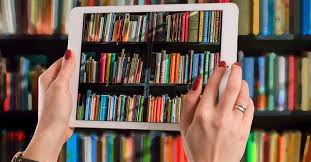In the contemporary era dominated by the Internet, there exists an undeniable truth that the cherished culture of reading books is experiencing a decline in the picturesque region of Kashmir. However, it is imperative to acknowledge that even before the Internet permeated the valleys, a substantial majority exhibited a lack of proclivity toward literary pursuits. Only a minority, enriched by external exposure, embraced the role of voracious readers.
Kashmir’s landscape is painted with diverse opinions regarding the erosion of book reading culture following the Internet’s integration into our lives. Amidst the varying perspectives, a common thread emerges—acknowledging the Internet’s dual impact on book reading culture, encompassing both positive and negative dimensions.
It is universally recognized that every innovation or revelation carries with it a duality of consequences. The Internet, while revolutionizing and globalizing our lives, has cast a shadow over certain aspects, particularly the revered culture of reading books. Despite the omnipresence of e-learning platforms and easily accessible PDFs, the tangible essence of flipping through physical pages and savouring the aroma of books has diminished.
Let us delve into an exploration of how the Internet has exerted its influence on the tapestry of book reading culture in our lives.
Firstly, a noticeable trend is the dwindling inclination to purchase books. The prevailing notion suggests that the vast repositories of global knowledge are merely a click away, rendering the burden of carrying physical books an unnecessary endeavor. In urban landscapes, bookstores often wear a desolate appearance, contrasting starkly with the bustling activity in other establishments. Books, relegated to discounted carts, seek attention from passers-by, yet the allure of these literary offerings fails to captivate a predominantly engrossed audience.

Secondly, the once fervent competition among peers to curate charming libraries filled with world-class books has waned. The rectangular allure of smartphones has supplanted the allure of giant libraries, as soft copies replace the once-prominent hard copies that adorned household shelves.
Thirdly, the advent of digitized education and virtual classrooms has facilitated a copy-and-paste culture from the vast expanse of the Internet. The necessity to consult physical books for reference has diminished, relegating primary sources to a state of neglect. The ease of copying information directly from the web has, to a certain extent, devalued the significance of authentic and original sources.
The fourth aspect contributing to the transformation of book reading culture is the compromised standard of literature. Some writers, driven by institutional interests, have seemingly relinquished their integrity for personal gains. Writers, perhaps swayed by the allure of employment or publicity, deliberately overlook the hardships faced by ordinary individuals. The thematic landscape of literature, once a mirror reflecting societal challenges such as poverty, climate change, wars, mental disorders, drugs, human trafficking, prostitution, and counterfeit medicines, has shifted towards narratives of romance and the supernatural. This incongruity acts as a formidable barrier, deterring readers from engaging with contemporary literature.
In the quest for holistic development, there arises an urgent need to rekindle the flames of the book reading culture. While the Internet has undeniably broadened access to an expansive literary universe, the true essence of reading lies in the tangible experience of holding a hardcover book. The aromatic allure and tactile delight associated with physical books are irreplaceable by the sterile digital realm of PDFs and e-libraries.
Reflecting on the era preceding the omnipresence of the Internet, books held sway over the world, producing brilliant minds whose voracity for reading was unparalleled. The genuine taste of learning emanates from the immersive journey through the realms of imagination and critical thinking, realms that can be uniquely accessed through the pages of a well-crafted book.
